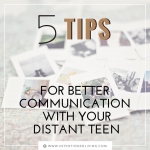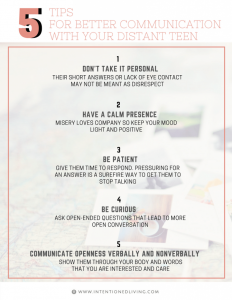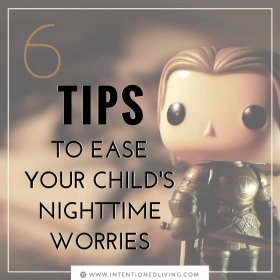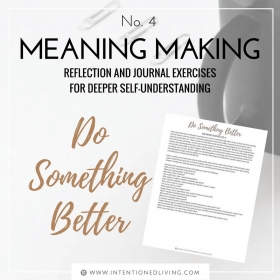
It happens all too often with parents of teens that before they know it they are sitting wondering what happened to their “little one”. They find that talking with their child is not as easy as it once used to be. They may even be unsure of when the problem started or how it got to where it is now. They try various ways to “bridge the gap”, such as asking their teen about their day, but get little if any response in return. Then all too often, parents respond by getting upset. They interpret this lack of response as defiance or “attitude”. They then feel that their authority is being questioned so they up the authority meter, putting on a stern voice, setting limits, reiterating rules, and dishing out consequences. Sure they can achieve their desired response of more communication, though the increase is often more of the negative – yelling, blaming, and even name calling. These parents got more communication, but not the type that they really wanted.
1. Don’t Take It Personal
The first step in trying to build stronger communication with your teen is to not take their short answers or lack of eye contact personally. Of course, if their response is truly in the realm of disrespect (derogatory comments or gestures) then respond appropriately. If instead your teen is like many teens who are more internally focused because they are in the stage of identity development, don’t take it as a personal attack on you and a symbol that they are throwing away all the love and time you have put into parenting them thus far.
2. Have A Calm Presence
Absolutely don’t try to start a conversation with your distant teen if you are in a bad mood. Why? Your bad mood will automatically be communicated in verbal and nonverbal ways, and your teenager will likely either take it as an attack on them or will make the decision that it’s not enjoyable to have a conversation with you. This will likely make them avoid you even more.
If you launch into a conversation because you thought you were rather calm or hadn’t yet taken the time to take inventory of your emotional state, and catch yourself huffing and puffing or being impatient, it’s ok to stop in the moment and apologize to your teen. Not only does this give you a chance to restart the conversation in a more positive tone, it also models for your teen how to acknowledge and take responsibility for our own actions.
3. Be Patient
Remember that it’s common at your teen’s developmental stage to be more internally focused. This means that they spend a lot of time in their own heads and thus may be slow to respond to questions you ask. Give them time to respond and if you see they are ambivalent, let them off the hook. Letting them off the hook let’s you off the hook too. For example, some words such as “Maybe we can talk more later if you’re up for it.” or “I’d love to know how ______ (your day, your game, your presentation/school project) went for you. I’ll be hanging out in the living room so anytime is good.” This helps end the interaction smoothly and in a way that leaves little room for misinterpretations.
4. Be Curious
Be in a curious state of mind and phrase your questions accordingly. This helps avoid a tone of judgment that can dissuade your teen from talking with you. If your teen fears or often feels like they are being interrogated then they of course will want to talk with you less and less. If though they feel that you are truly curious about them, then they will want to talk more.
Ask open-ended questions instead of closed-ended. Closed-ended questions pull for simple yes and no answers while open-ended questions pull for more explanation and are based on your teen’s knowledge or feelings. Open-ended questions will be in the form of the “what” or “how”. Examples include, “What was that like for you?”, “How did you know that?”. Questions in the form of “why” can also be open-ended, but be careful of tone with this one because a why question said with a negative tone can come off as blaming such as in, “Why in the world did you do that?”.
5. Communicate Openness Verbally and Nonverbally
This means to be physically present in the conversation – eye contact, facing your teen, not engaging in other things/multi-tasking. This also means to communicate listening, interest, and understanding through nonverbal gestures such as nodding your head, smiling, and various facial expressions to communicate interest. Think about your own experience of this in conversations with your own parents or others. Isn’t it easy to read cues when someone is not fully invested in the conversation versus when someone is?
Building a stronger connection with your distant teen through conversations is only one of the many ways. Sometimes, if the communication has been too strained for too long then it may be more effective for a parent to initiate interactions through activities together. These activities don’t have to be grand adventures. In fact, if the gap is very wide between you and your teen then starting with activities together that require less pressure to directly interact with each other may be the way to go (e.g. watching a movie, television show, or game together). This is still a step in the right direction because at least you are doing something together versus not.
The key is to be mindful of the tips, to start somewhere, and to not get discouraged.
Good luck!
CLICK HERE for a reminder worksheet.









